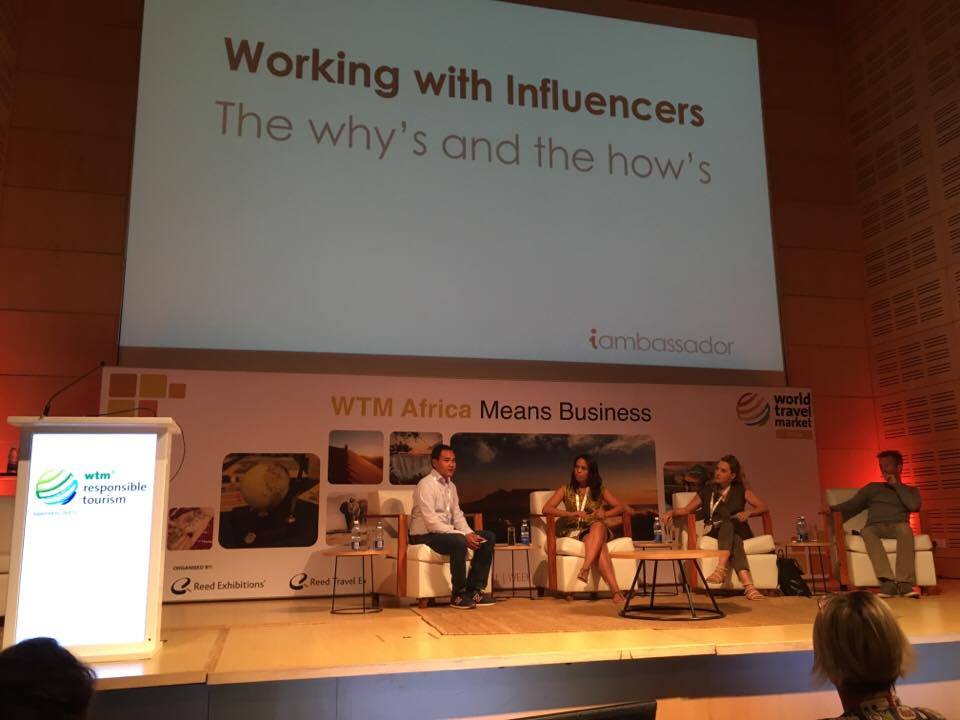
Related
Top stories






More news


Marketing & Media
Ads are coming to AI. Does that really have to be such a bad thing?














What stood out holistically throughout the discussion was the topic of trust and that, without it, only so much can be achieved. A brand needs to know that they can approach an influencer to tell their story in the best possible way and consumers need to know that they can receive the most updated and relevant information from influencers in the industry.
Storytelling is a fundamental part of any brand or business. It's the power of conversation. If a story is told the wrong way, it could lead to a loss of customers, engagement, and sales. As digital is on the rise, people are looking to influencers for advice on what to do and where to buy, and as trust, according to Helmbold, has become one of the most important commodities in travel right now, consumers are always looking to influencers lives, whether that’s via YouTube, Instagram, their blogs or Twitter.
The world is evolving and, as Helmbold points out, travellers are no longer just spectators, they're emerging and forming part of the experiential transformation of travel, where people want to connect. Helmbold goes on to say that marketing campaigns digitally has to comprise of understanding the psyche of the traveller, because as the world is changing, influencers have to evolve with that change, move and inspire people, and buy into a destination for communities and people to flourish.
To build trust one has to be honest, says Helmbold. You need to be able to align yourself with the brands that really echo your lifestyle and have a relationship that goes beyond numbers. By being yourself, and being interactive, you allow for your presence to always be felt.
Boecher reiterates the importance of being present and building long-term relationships and continues by saying that when consumers visit a blog or brand, they'll know that they're being cared for and that their queries will be answered.
Ask the right questions, and again, be honest. If a brand doesn't align with your blog, you need to be able to speak up and say so, says McShame, and in doing so, align yourself with the right people who echo your blog or influencer lifestyle. The audience needs to be taken into consideration at all times, as they are the ones who are receiving the content that you’re putting out there. Brands need to know that influencers won’t just be singing their praises, and that they need to provide influencers with relevant content that aligns correctly to the blogger's blog or social media platform, the traveller or audience who engages with the content, and the business who wish to have their brand part of the engagement.
Research and documentation then become key factors to consider. Influencers and brands need to know and understand what the other is looking for and what they’re about, and in which area and/or direction they would like to move forward. By documenting the interaction between influencers, audience, and brands, influencers are able to assess and measure ROI and provide feedback on any changes that need to take place and then discuss viable strategic solutions for future content in line with the evaluation of the report.
Helmbold elaborates on the importance of experiential marketing in destination marketing and highlights the hustle, especially when influencers have to work with governments and tourism boards. Strategy becomes imperative so that any risks that may come up can be avoided. McShame goes on to say that budget can sometimes present a problem and that asking yourself the right questions - like (1) What is my strategy and (2) What do I want to say - can be crucial in determining what information you'll use and how, and how that could generate sales or ROI.
Influencers like to see that their content is being shared. By sharing relevant and up-to-date content on a regular basis, brands are able to nurture their relationships with influencers. Social media has become a driving force behind any brand that needs to enlarge their reach, as it is fast accessible and builds communities. Gone are the days when you'd have to wait for information to reach you — now it's literally just a click away.
Destinations have also become more aware of influencers in marketing and how digitally, even visually, it would be to their benefit to connect with these influencers and have their destination, and its stories, shared.
As social media has evolved, so has influencers. In the past, as Helmbold says, they jumped in blindly. Influencers have become more skeptical of the brands they work with, considering the given spectrum and shift in strategies, encompassing public relations now as an exercise in strategy for brands and explanations.
In conclusion, content and the way in which you create and share it has become important to influencers in the travel industry who want to make their mark as established bloggers. Destinations and businesses alike are also considering influencers, what they're doing and how they're doing it, and where they, as business or brand, can fit into the influencer model.